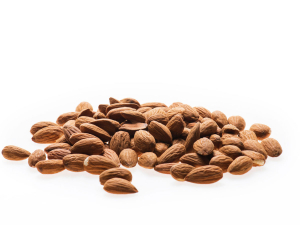Science system shakeup ‘to maximise investment value’
Reaction to the Government’s major overhaul of the country’s seven crown research organisations has so far been largely positive.
 A feasibility study is being carried out to see if almonds can be grown sustainably in Hawke’s Bay. Photo Credit: Plant & Food Research.
A feasibility study is being carried out to see if almonds can be grown sustainably in Hawke’s Bay. Photo Credit: Plant & Food Research.
A feasibility study is being carried out to see if almonds can be grown sustainably in Hawke’s Bay.
The Plant and Food Research project has backing from central and local government, alongside Picot Productions Limited – the Nelson-based producers of the Pic’s brand nut spreads.
“We’re already supporting peanut growing trials in Northland – now it’s almonds’ turn,” says Steve Penno, MPI’s director of investment programmes.
“The first step is to see whether we can successfully produce almonds with a low carbon footprint at scale and for a competitive price in New Zealand.”
MPI is investing $67,000 through the Sustainable Food and Fibre Futures fund (SFF Futures) in the $100,000 project.
Plant and Food Research business manager Declan Graham said the goal is to provide diversification opportunities for local dry stock farmers – rather than trying to replicate the large-scale almond monocrop system of California.
“Ideally farmers will be able to set aside some of their pastoral land for growing almonds, as a way of diversifying and deriving better value from their land.”
AgFirst will undertake a financial analysis as part of the project. They will consider the economics of setting up a profitable almond orchard system – factoring in market prices, climatic volatility, and environmental sustainability challenges.
“We need to understand whether Kiwis would prefer to buy New Zealand almonds and whether growers would be able to get the returns they need,” Graham says.
If the feasibility study shows almond growing has promise, the next step would be growing trials.
“We’d look at experimenting with the Future Orchard Planting Systems (FOPS) approach, which optimises the use of sunlight for higher yields and quality,” Graham adds.
“We’d also investigate if we can grow almonds using less water compared to commercial practices overseas, as well as an integrated pest management approach.”
Graham says almonds were first introduced to New Zealand by Chinese goldminers during the Otago goldrush in the 1860s.
“We’ve already done some blue skies work to understand the almonds growing in the hills in Otago,” he adds.
“We’re also analysing the almond crop grown by a local Hawke’s Bay farmer.
“Our research to date indicates that Hawke’s Bay’s climate is ideal for almonds. There’s not enough chilling in Northland and the Otago cultivars can be damaged by late frosts,” Graham explains.
“Given almonds flower early, they won’t interfere with other crops in the Hawke’s Bay region.”
Central Hawke’s Bay District Council mayor Alex Walker says the aims of the project fit well with the council’s economic development strategy.
Global trade has been thrown into another bout of uncertainty following the overnight ruling by US Supreme Court, striking down President Donald Trump's decision to impose additional tariffs on trading partners.
Controls on the movement of fruit and vegetables in the Auckland suburb of Mt Roskill have been lifted.
Fonterra farmer shareholders and unit holders are in line for another payment in April.
Farmers are being encouraged to take a closer look at the refrigerants running inside their on-farm systems, as international and domestic pressure continues to build on high global warming potential (GWP) 400-series refrigerants.
As expected, Fonterra has lifted its 2025-26 forecast farmgate milk price mid-point to $9.50/kgMS.
Bovonic says a return on investment study has found its automated mastitis detection technology, QuadSense, is delivering financial, labour, and animal-health benefits on New Zealand dairy farms worth an estimated $29,547 per season.

OPINION: Here w go: the election date is set for November 7 and the politicians are out of the gate…
OPINION: ECan data was released a few days ago showing Canterbury farmers have made “giant strides on environmental performance”.